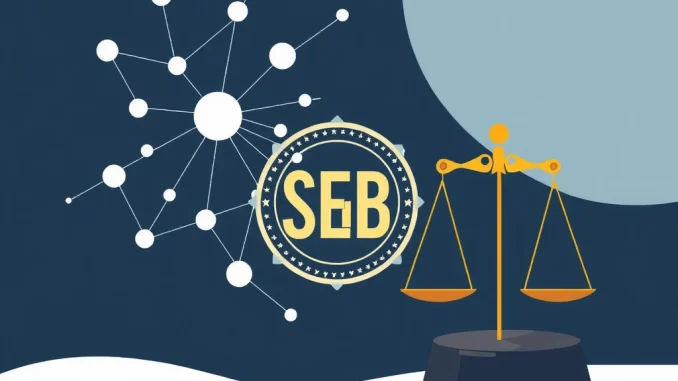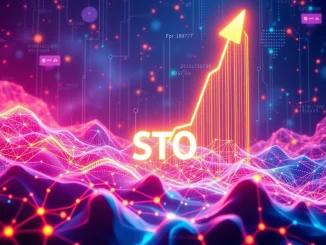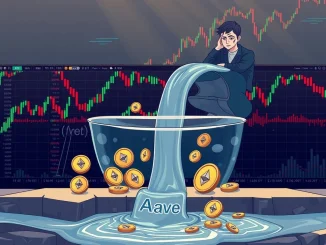
The world of decentralized finance (DeFi) is constantly evolving, pushing the boundaries of traditional financial and legal frameworks. A critical point of discussion right now revolves around the regulatory status of DeFi DAOs – Decentralized Autonomous Organizations. These entities, governed by code and community, are at the heart of many DeFi protocols. But how do they fit into existing securities laws, particularly the infamous Howey Test?
Why the Howey Test Matters for DeFi DAOs
The Howey Test is a U.S. Supreme Court standard used to determine whether a transaction qualifies as an “investment contract,” and thus is considered a security subject to SEC regulation. It originates from a 1946 case involving citrus groves. A transaction is an investment contract if it involves:
- An investment of money
- In a common enterprise
- With an expectation of profits
- Derived solely from the efforts of others
For many years, the SEC has applied this test to various assets, including digital assets. The concern for DeFi DAOs is that their native DAO tokens, which often grant governance rights and can fluctuate in value, might be deemed securities under this test.
Urgent Call to the SEC on Howey Test Exemption
Recognizing this potential conflict, leading voices in the DeFi space are proactively engaging with regulators. The DeFi Education Fund and the Uniswap Foundation recently sent a detailed letter to the U.S. Securities and Exchange Commission’s (SEC) Crypto Task Force on May 27. Their core argument? That DAOs which are genuinely “sufficiently decentralized” should not be subjected to the Howey Test.
Their reasoning centers on the ‘derived solely from the efforts of others’ prong. In a truly decentralized DAO, decision-making power and development aren’t concentrated in a small group or single promoter. Instead, governance and direction come from the collective token holders. If profits (or value appreciation) are derived from the active participation and collective efforts of a dispersed community, the argument is that it doesn’t fit the traditional definition of an investment contract where investors are passive.
The letter specifically claimed that in such cases, DAO tokens and related transactions should not be classified as securities. This engagement follows a Feb. 21 statement from SEC Commissioner Hester M. Peirce, who leads the agency’s Crypto Task Force and has been vocal about the need for clearer digital asset regulation. Her statement invited input from the public and industry on how to approach this complex area.
Implications of Cryptocurrency Regulation on DAOs
Applying traditional securities law, like the Howey Test, to decentralized structures presents significant challenges:
- Legal Uncertainty: It creates ambiguity for DAO participants, developers, and token holders regarding their legal obligations.
- Innovation Stifled: Overly strict or ill-fitting regulation could hinder the development and adoption of decentralized technologies in the U.S.
- Enforcement Challenges: Identifying responsible parties in a truly decentralized network is inherently difficult.
- Global Competitiveness: Unclear or burdensome U.S. rules could push DAO development and activity to jurisdictions with more favorable or clearer regulatory environments.
The plea from the DeFi Education Fund and Uniswap Foundation highlights the industry’s desire for tailored regulatory approaches that recognize the unique nature of decentralization, rather than shoehorning DAOs into existing frameworks designed for centralized entities.
What’s Next for DAO Tokens and the SEC?
The letter is a significant step in the ongoing dialogue between the crypto industry and regulators like the SEC. It underscores the need for clarity in Cryptocurrency Regulation, particularly concerning decentralized governance structures. While the SEC has not yet issued formal guidance specifically addressing the Howey Test’s application to decentralized DAOs based on this input, the conversation is gaining momentum.
Industry participants are hopeful that regulatory bodies will consider the functional decentralization of a network or organization when assessing whether its associated tokens constitute securities. The outcome of this dialogue will have profound implications for the future development and operation of decentralized protocols and the broader DeFi ecosystem in the United States.
Summary: Navigating the Regulatory Maze
The push by DeFi advocates to exempt sufficiently decentralized DAOs from the Howey Test is a crucial development in the quest for clearer Cryptocurrency Regulation. By arguing that DAO tokens in decentralized structures don’t fit the ‘efforts of others’ criteria, they seek a regulatory approach that acknowledges the distinct nature of decentralized governance. The SEC’s response to this urgent plea will be pivotal in shaping the legal landscape for DeFi DAOs and determining how innovation in this space can flourish under U.S. law.



